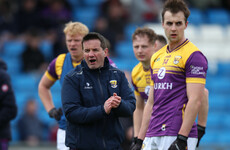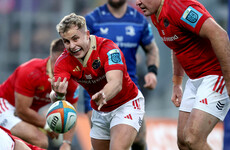Why we loved them
In May 1992, Norwich City managed to stay in English football’s top division – just about. They finished three points clear of the drop-zone, having won just eight games all season. After a relatively successful period under the guidance of Dave Stringer, it seemed a natural time to part company. His replacement came from within.
Mike Walker had been in charge of Norwich’s youth team for a number of years before being handed the chance to succeed Stringer in the summer of 1992. He would subsequently oversee arguably the greatest period in the club’s history.
Despite losing top goal-scorer Robert Fleck to Chelsea in controversial circumstances, Walker signed Mark Robins from Manchester United as his replacement and also placed his faith in a collection of younger players like Ruel Fox and Chris Sutton. The blend of youth and experience (midfielders Ian Crook and David Phillips, defenders Mark Bowen and Ian Culverhouse and the goalkeeper Bryan Gunn had all been with the senior squad for years ) had the perfect effect and the team played with pace and power. There was an energy and style to their performances though ultimately, the team will be remembered for having the league title in their hands only to let it slip at the critical moment. Heading into the Christmas period, they sat eight points clear at the top of the table but eventually finished in third place.
The story
When Walker was appointed as manager in the summer of 1992, the story goes that the majority of Norwich fans were furious. With the club in such a perilous situation (star player gone, the team had battled relegation the season before, attendances were dropping all the time), they felt a marquee name was the way to go. And at half-time on the opening day of the season, their fears and frustration were quickly being realised. The team were 2-0 down against Arsenal at Highbury and looked doomed. On 58 minutes, Walker introduced Robins and Norwich never looked back.
Ten minutes after coming on, Robins had scored. Three minutes later, Phillips equalised and ten minutes after that, Fox put Norwich in front. Two minutes after that, Robins grabbed his second and put the icing on the cake. An incredible turnaround. A 2-4 success in North London and Norwich were up and running.
From their first ten games, Norwich lost just once but against the better teams, they were coming unstuck. There was a 7-1 demolition at the hands of title-pretenders Blackburn while three weeks later, they suffered a 4-1 defeat to Liverpool.
- Join TheScore.ie’s Premier League Fantasy Football League using this code: 1137213-271081
But, they were still in fine shape and picked up impressive victories away to Oldham and Aston Villa before paying a visit to Old Trafford. Against his former club however, Robins was held scoreless and a solitary strike from Mark Hughes gave the hosts the win. The result seemed to stump Norwich and they rapidly lost form.
They failed to win for five games and after such a positive start to the campaign, they began to turn into an incredibly inconsistent side. Having finished the year sitting at the top of the table, it was imperative that they settled into some kind of form, especially due to United and Aston Villa putting together a string of impressive results. Instead, by mid-February, they found themselves six points back and having to play catch-up. After a 3-1 loss to QPR in early March, Norwich were seven points behind United with time running out but by the end of the month, they had re-grouped and somehow managed to return to the summit. But there was an inevitable showdown at Carrow Road on 5th April when United came to town.
United were without Mark Hughes but still could rely on the pace of Andrei Kanchelskis and Ryan Giggs while Eric Cantona had quickly and effortlessly settled into the role of play-maker since his November transfer from Leeds.
In eight blistering first-half minutes, Norwich were torn to shreds. Twice, their offside trap failed miserably – attempting to step up when speed-freaks like Kanchelskis and Giggs were around seemed an odd strategy anyway and it rapidly backfired. The Welshman opened the scoring after 13 minutes. Seven minutes later, Kanchelskis added a second. Inside sixty seconds, a marauding Paul Ince set up Cantona for a tap-in and Norwich’s title hopes were all but over.
The hangover remained for a while. Four days later, Norwich were thumped 5-1 by Tottenham at White Hart Lane. Within a few weeks, they trailed United by ten points. The dream was over.
The third-place finish was still an incredible achievement in the circumstances and under Walker’s stewardship, Norwich qualified for Europe for the very first time. It was here, during the 1993/94 season, that the club would experience one of their most memorable moments – beating Bayern Munich in the second round of the UEFA Cup at the Olympic Stadium. Jeremy Goss hit an incredible right-footed volley to give them the lead before Mark Bowen added a second on the half-hour. Christian Nerlinger responded for the Bavarians but they couldn’t find an equaliser. Following Bowen’s clever header, John Motson, commentating for the BBC, delivered the immortal line, ‘This is almost fantasy football’.
In the return leg at Carrow Road, Jeremy Goss scored in a 1-1 draw that ensured Norwich progressed 3-2 on aggregate. In the next round though, Norwich were beaten by eventual-winners Inter Milan – Dennis Bergkamp scoring a goal in each leg to ensure a 2-0 aggregate win for the Italians.
The following month, Walker was gone as manager, walking out after a series of disagreements with chairman Robert Chase. He moved to Everton instead and signed a long-term contract. But his tenure at Goodison Park was short and painful. Though he managed to keep Everton in the top-flight during his initial few months in charge, he was gone by the end of the year.
As for Norwich, there was mass exodus in the summer of 1994. Chris Sutton was sold to Blackburn, Ruel Fox was transferred to Newcastle, Efan Ekoku went to Wimbledon and Mark Robins headed for Leicester. Even stalwart Ian Culverhouse was moved on.
It was the end of an era and Norwich were relegated at the end of the season.
Stand-out player
A club record signing in 1989 (£550,000), David Phillips was a versatile midfielder and an ever-present in the Norwich side during the 92/93 campaign. As well as his consistency, he had an eye for goal but seemed to hit a purple patch during the 92/93 campaign.
He scored nine times with seven of those coming in the second half of games – Norwich had a reputation for coming from behind to rescue results. So, Phillips was also an influential goalscorer. He finished with more than Chris Sutton but, fitting the Norwich narrative, this proved his final season and he left because of a contract dispute. Despite celebrating his thirtieth birthday shortly after leaving, he managed four more seasons with Nottingham Forest and was still playing at a decent level eight years after he left Carrow Road. It was another example of the poor long-term planning at the club at that particular time.
Stand-out moment
But, the introduction of Mark Robins changed everything. After he scored Norwich’s first from a precise David Phillips’ free-kick, the side began to play with a renewed sense of purpose. They started to make runs into the channels and drove at Arsenal, using their pace to cause problems. After Phillips levelled, Fox added a splendid third after he was played through by Jeremy Goss. The fourth came courtesy of a mistake from Tony Adams but was magnificently finished to the net by Robins.
A 2-4 victory gave Norwich confidence to play in an attacking way. Perhaps a lack of balance eventually cost them but it made watching them hugely enjoyable.
















Newcastle flying top 4 great chance
Isak is pure silk.
Southamton leicester are down who will be 3rd side wolves everton ipswich utd ???
@Raymond Darcy: it’s Ipswich Town not Ipswich United you fool
@Raymond Darcy: ask Ray ridge who’ll be the 3rd team to go down, then back then to stay up. eeaaasssyyyy money
@robbie Delaney: wolves everton ipswich are utd happy now fool
@Niall English: I allways do im rich from his predictions
@Raymond Darcy: ha ha are they all united together
@robbie Delaney: Ipswich ( TOWN ) my second team and ya west ham UTD are Man UTD
@Raymond Darcy:ha ha, I think you need to be a little more specific
@Raymond Darcy: found out and then respond with calling names..only fool or tool here is yourself. Goodman keep up the good work.
@Paully kells: found out? You will find he calling names first
@Raymond Darcy: question?how is “west ham utd are man utd”??
@ Ronan Barret. David Moyes you footballing genius.
Meet the new Everton Moysey, not the same as the old Everton, but same old Everton…ahh fook it’s late youse know what I mean!